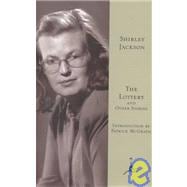
| The Intoxicated | |
| The Daemon Lover Like Mother Used to Make Trial by Combat | |
| The Villager My Life with R.H. Macy | |
| The Witch The Renegade After You, My Dear Alphonse Charles | |
| Afternoon in Linen Flower Garden Dorothy and My Grandmother | |
| And the Sailors Colloquy Elizabeth A Fine Old Firm | |
| The Dummy Seven Types of Ambiguity Come Dance with Me in Ireland Of Course Pillar of Salt Men with | |
| Their Big Shoes | |
| The Tooth Got a Letter from Jimmy | |
| The Lottery Epilogue | |
| Table of Contents provided by Publisher. All Rights Reserved. |
The New copy of this book will include any supplemental materials advertised. Please check the title of the book to determine if it should include any access cards, study guides, lab manuals, CDs, etc.
The Used, Rental and eBook copies of this book are not guaranteed to include any supplemental materials. Typically, only the book itself is included. This is true even if the title states it includes any access cards, study guides, lab manuals, CDs, etc.
Excerpted from The Lottery: And Other Stories by Shirley Jackson
All rights reserved by the original copyright owners. Excerpts are provided for display purposes only and may not be reproduced, reprinted or distributed without the written permission of the publisher.